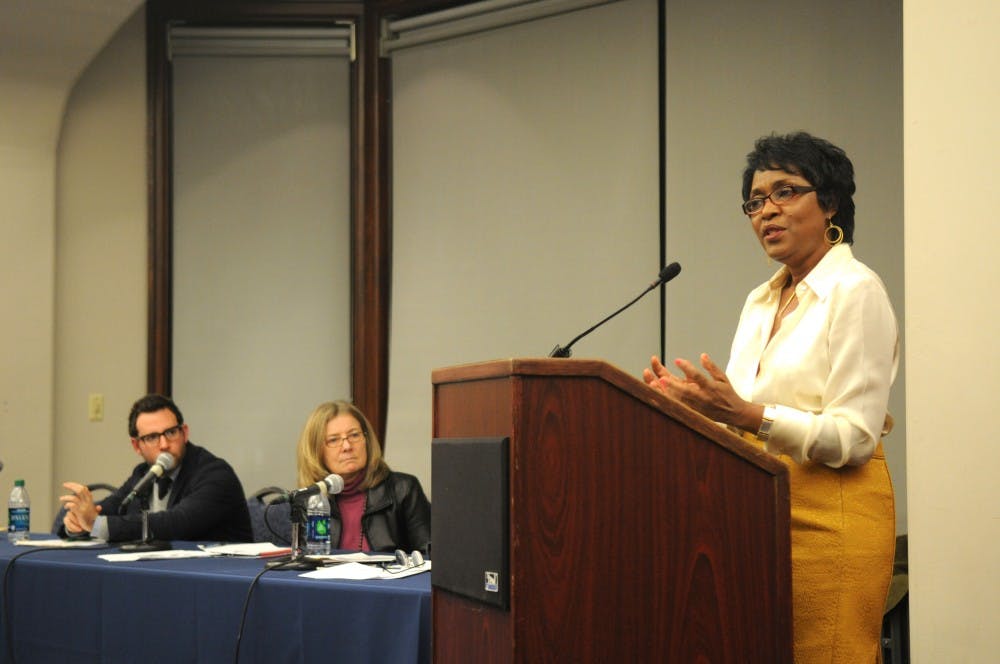
Graduate School of Education professor Vivian Gadsden speaks at an education reform panel co-hosted by GSE and the Penn Institute for Urban Research.
Credit: Luke ChenWith public education being an issue that could potentially be influenced by the election, members of the Penn community came together Monday to discuss the future of the city’s school system.
Monday night, the Penn Institute for Urban Research collaborated with the Graduate School of Education to sponsor a panel discussion on community and education challenges in Philadelphia. Focusing specifically on research and reform, the panel presented a detailed analysis of the underlying problems in Philadelphia’s public education system.
As moderator of the discussion, GSE professor Bob Boruch commented that the connection between research and practice is the “holy grail” to achieving real educational reform. A variety of external influences — from minimal federal funding to political agendas getting in the way of allocating resources to education — can interrupt this process, he added.
Because the federal government does not fund the majority of K-12 expenses, “to have sway in educational policy, [the government] needs something besides money,” said GSE professor and panel member Rebecca Maynard. “The federal government has become pretty interested in whether or not they are hanging their dollars on the right tree.”
In response to this issue, GSE assistant professor Matthew Steinberg focused specifically on the connection between policy makers and policy researchers. Urging collaboration between these two groups, Steinberg stressed an “understanding of the efficacy of policy” and further transparency between school districts and states.
Panel members touched upon this collaboration on Monday specifically as it relates to Penn.
GSE professor Vivian Gadsden, who also serves as director of the National Center on Fathers and Families, discussed what it really means to “collaborate” in terms of relationships and partnerships between different schools.
“A more salient issue in the local perspective is what works or can work in Philadelphia, and what is the role of institutions such as Penn … in helping the district shape, revise and adapt its agenda to students,” Gadsden said.
An example of this is the Penn Alexander School, a “beacon of hope” that demonstrates an “institutional commitment to neighborhood and community commitment and change,” she said. While the University’s involvement with Penn Alexander has led to higher test scores, positive parental feedback and innovative teaching methods, Gadsden emphasized that “one school is not enough.”
College sophomore Melanie Young, who attended the panel, agreed, adding that “everybody has a responsibility to act.”
“The more privileged you are, the more responsibility you have to act,” she said, “and Penn is a very privileged university — both in the past and in the present.”
The Daily Pennsylvanian is an independent, student-run newspaper. Please consider making a donation to support the coverage that shapes the University. Your generosity ensures a future of strong journalism at Penn.
DonatePlease note All comments are eligible for publication in The Daily Pennsylvanian.








